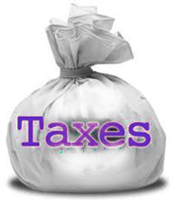 During the financial year, an assessee can be employed simultaneously under more than one employer or can change the employment during the financial year.
During the financial year, an assessee can be employed simultaneously under more than one employer or can change the employment during the financial year.
In both cases, employee can furnish details of salary due or received by him to either of the employer of his choice. Such company after getting employee’s salary details has to compulsorily deduct TDS after considering such declared income.
Employee has to provide his salary details and TDS deducted from such salary in writing and duly verified by him. It is the responsibility of the employee to provide details his or her organization.
If employee has not disclosed his salary received from previous organization to the present organization then he has to calculate income tax liability in advance and pay self assessment tax to the IT department before the due date.
At the end of the year, Employee will get form 16 from both the employers based on the salary obtained from them and the break up of that in form no 12BA. Form 16 is a certificate issued by employer to employee having all the details of TDS deducted and deposited along with the bank Challan number, date of deposit and BSR code.
Such form 16 and 12BA can be used by the employee in deriving income tax liability for the financial year. After taking out the TDS amount deducted from employee’s salary if any amount left out then such amount has to be compulsorily paid to IT department by the employee before the due date. If such unpaid amount paid after the due date then it has to be paid along with interest as applicable to the assessee.
Most of the time employees do not disclose last employer’s salary to the present employer. In such cases they end up paying penal interest at the end of the year if any income tax liability exists after taking out TDS deducted by both the employers.
FAQ on cases where employee has received salary from more than one employer
I was working in a software company and now moved to another company during this financial year. What are the things I need to disclose to my present employer for the purpose of tax deduction?
After joining your present company, your employer will be asking you for your income tax declaration for TDS deduction. In addition to all your investments, house rent and others you need to disclose your taxable salary received from last employer and income tax deducted from such salary.
I have not disclosed my last organization’s salary to my present organization and the tax declaration date for the present organization is over. What should I do?
Declaration of last organization’s salary to present organization is not compulsory. If you have not disclosed it to your present employer then calculate your income tax by taking both incomes together and pay tax on your own.